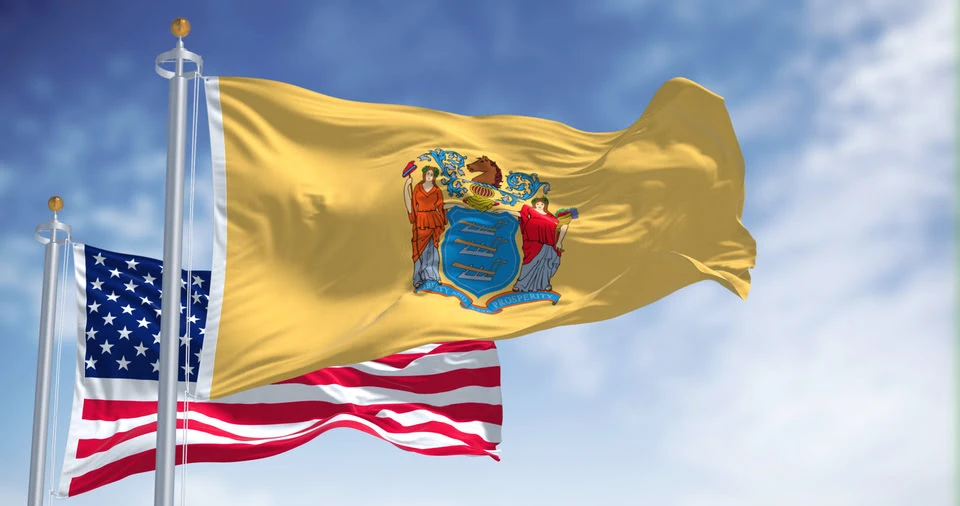
A new bill introduced by New Jersey lawmakers seeks to shut down sweepstakes gambling, arguing that these platforms blur the line between promotional gaming and traditional casinos while operating without clear regulatory oversight.
The legislation, unveiled Monday by State Senator John Burzichelli (D-Salem, Gloucester, Cumberland) and Assemblyman Clinton Calabrese (D-Bergen, Passaic), follows concerns raised by gaming regulators. They warn that sweepstakes casinos fall outside New Jersey’s licensed gambling framework, creating an enforcement gap that could put consumers at risk.
“Our regulators came to the Legislature and said, ‘These guys found a sweet spot, and they’re operating in a gray area,’” Burzichelli stated. “We don’t have the reach we should have to protect consumers.”
If passed, the bill would impose strict penalties on operators and significantly alter the landscape for sweepstakes-based gaming in the state.
What the Bill Proposes & Why It Matters
Under the proposed legislation, sweepstakes gambling would be categorized as a promotional scheme where players can win prizes using a system that involves both free and purchased virtual currency. Lawmakers argue that while these platforms advertise themselves as free-to-play, they frequently encourage users to buy digital credits that can later be exchanged for real money or rewards.
The bill targets online platforms which offer casino-style games, including slots, poker, blackjack, and roulette, where players can purchase virtual credits. Regulators are especially focused on the use of virtual currencies, where players can purchase gold coins for gameplay or acquire sweep coins, which can later be exchanged for cash or prizes, making these platforms functionally similar to traditional gambling.
Despite its strict stance, the legislation does carve out specific exemptions. Games that are genuinely free-to-play, with no option to buy additional virtual currency, would remain legal. Sweepstakes tied to food, non-alcoholic beverages, or low-value merchandise, capped at $20 or less, would also be permitted.
To enforce compliance, the bill proposes severe financial penalties. Operators caught violating the ban would face a $100,000 fine for a first offense, with repeat infractions resulting in a $250,000 penalty.
Industry Impact: Who Gets Affected?
If passed, the law would have a major impact on sweepstakes-based gaming platforms, including Chumba Casino, LuckyLand Slots, and Global Poker. These companies, which operate without traditional gaming licenses, would be forced to either cease operations in New Jersey or change their business model to comply with state regulations.
The American Gaming Association (AGA), the leading trade group for the U.S. casino industry, has endorsed the regulatory push, arguing that sweepstakes casinos lack critical consumer protections and do not follow the same responsible gaming standards required of licensed gambling operators.
“There is no regulatory oversight to ensure that sweepstakes casinos follow essential responsible gaming protocols or consumer protection measures, creating an unsafe environment for players,” the AGA stated. “That is why it is so critical for state gaming regulators and attorneys general to scrutinize the legality of sweepstakes casinos and take decisive action against any violations.”
New Jersey, known for having one of the strictest regulated online gambling markets in the country, is taking a firm stance to protect both consumers and licensed operators from what it views as unregulated competition.
A Growing Crackdown on Sweepstakes Casinos
New Jersey is not acting in isolation. The push to ban sweepstakes gambling is part of a wider national trend as more states begin scrutinizing these platforms and questioning their legality.
Maryland recently took decisive action by ordering Chumba Casino’s parent company, Virtual Gaming Worlds (VGW), to exit the state, arguing that sweepstakes casinos violate its gambling laws. Other states are now considering similar measures, raising the possibility that New Jersey’s legal stance could set a precedent for stricter enforcement nationwide.
The central issue for lawmakers is whether sweepstakes casinos are genuinely distinct from traditional gambling or merely a loophole that allows unlicensed operators to thrive. If New Jersey succeeds in banning them, other states may feel emboldened to follow suit.
Industry Pushback: “This Bill Is Reckless and Shortsighted”
Not everyone is on board with the proposed ban. The Social and Promotional Games Association, which represents sweepstakes and social gaming operators, has strongly opposed the bill.
In a statement, the association criticized the legislation as “reckless and shortsighted,” arguing that it threatens an industry that provides safe and innovative entertainment for millions of players.
“Our members take pride in driving innovation and providing safe, engaging digital entertainment to New Jersey consumers,” the group said. “We remain committed to working with policymakers to ensure that millions of American adults can continue enjoying their preferred gaming experiences within a properly regulated environment.”
Rather than an outright ban, some industry stakeholders have called for regulation instead of prohibition. In other states, such as Michigan and Pennsylvania, policymakers have created licensing structures for online gaming rather than outlawing it completely.
However, New Jersey lawmakers appear firmly committed to closing what they see as a legal loophole, rather than working toward a regulatory compromise.
What Happens Next?
The bill is still in the early stages of the legislative process, but given New Jersey’s strong stance on regulated gambling, it appears to have strong momentum.
The legislation must first go through committee hearings, where lawmakers will debate its provisions and hear further testimony from regulators, industry representatives, and other stakeholders. If it progresses, it will need approval from both the state Senate and Assembly before reaching the governor’s desk for final consideration.
If the bill becomes law, sweepstakes gambling operators will have little choice but to comply, exit the New Jersey market, or challenge the ban in court. Legal experts suggest that any legal battle would likely center on whether these platforms meet the legal definition of gambling under existing state regulations.
For players, this could mean the end of an alternative gaming option that has gained popularity as a more accessible substitute for traditional online casinos. For operators, the stakes are even higher. If New Jersey succeeds in eliminating sweepstakes gambling, other states may soon follow.

Blaise Luis

